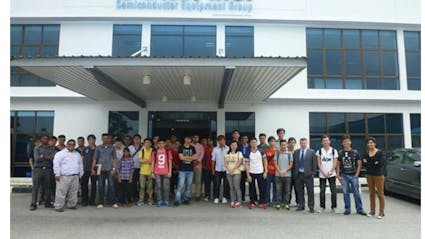Cohu

The Company: About Cohu
Founded in 1957, Cohu offers a broad portfolio of equipment and services for back-end semiconductor manufacturing, including test and handling equipment, thermal subsystems, test contacting, and vision inspection. The California-based company had grown through acquisitions over the years, and each of its acquired businesses retained its legacy back-office systems and processes — and, to an extent, its own identity.
The Situation: Standardizing on a Cloud-based System
As part of its quest to become One Cohu, the company decided to standardize on common cloud-based systems, processes, and shared services in order to increase efficiency, scale quickly, and ultimately move toward a unified identity.
The Solution: Oracle Fusion Could ERP
After years of integrating a range of on-premises legacy software, Cohu moved to Oracle Cloud ERP financial applications, Oracle Cloud SCM supply chain apps, and Oracle CPQ (Configure, Price, Quote) sales apps in February 2020, five years after standardizing on Oracle Cloud HCM apps under a separate project. The company used Oracle Integration to connect their on-premises, custom, and SaaS systems. One of the reasons the company chose Oracle was because, unlike competing vendors, it wouldn’t require partnerships with third-party product vendors.
“It’s an integrated environment, from product development all the way to customer feedback,” says Cohu CIO Craig Halterman. “If Workday, SAP, and Salesforce really want to continue to nip at the heels of Oracle Cloud, they’re going to have to invest in developing more comprehensive and more integrated suites.”
The Results: Oracle Fusion Cloud ERP Implementation Benefits
Cohu implemented the Oracle Cloud finance, supply chain, and sales applications just before the COVID-19 pandemic forced some of its employees to begin working remotely. Already, executives and managers can run reports and see company-wide information they couldn’t see before — from work orders in play to invoices to receivables to purchase orders.
Having one supply chain system and process means that Cohu’s production managers in Malaysia won’t have to work with three or four different processes and workflows when engineering change orders come through from different areas of the business. As the company extends its supply chain system to its suppliers, it will be able to capture quality information about components early on, reducing quality issues that it used to have to pass back to suppliers.
Moving to a single ERP and supply chain platform will also enable Cohu to integrate acquired companies faster by requiring them to move to the Oracle Cloud platform.
Cohu’s IT department no longer focuses on maintaining a wide range of systems, but on looking for ways to use the latest quarterly updates from Oracle to transform the business.
Additional Oracle Fusion Cloud ERP Case Studies
Below, you can explore additional ERP case studies, showcasing companies that have reaped significant benefits from successful ERP implementations of Oracle Fusion Cloud ERP.
Additional Semiconductors Industry Case Studies
Explore additional case studies below, featuring companies in the Semiconductors Industry. Also, see our comprehensive side-by-side comparison of all ERP systems for the Semiconductors industry.
Still seeking industry-specific information? Compare the top ERP software for the Semiconductors Industry to find the product that best meets your company's needs and budget.
